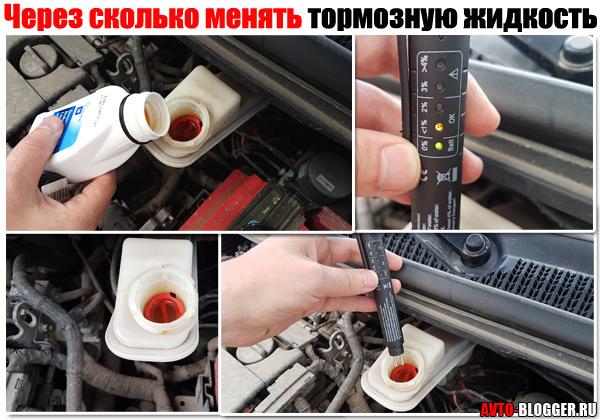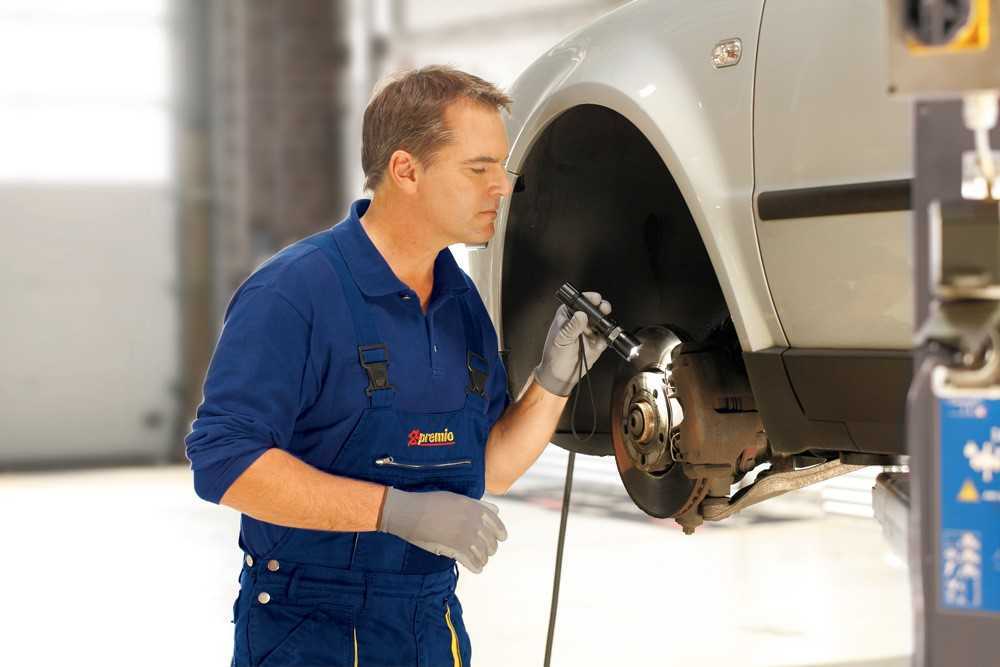
How often should brake fluid be changed?
 Some safety issues are often overlooked or downplayed by vehicle owners. Changing the brake fluid is definitely one of them.
Some safety issues are often overlooked or downplayed by vehicle owners. Changing the brake fluid is definitely one of them.
The function of brake fluid is to transfer pressure from the brake master cylinder (actuated by the driver's foot, but using power steering, ABS, and possibly other systems) to the brake cylinder that moves the friction element, i.e. shoe (in disc brakes) or brake shoe (in drum brakes).
When the liquid "boils"
Temperature around brakes, especially disc brakes, is a problem. They reach many hundreds of degrees Celsius, and it is inevitable that this heat also heats up the liquid in the cylinder. This creates an awkward situation: a liquid filled with bubbles becomes compressible and stops transmitting forces, i.e. respectively press on the piston of the brake cylinder. This phenomenon is called "boiling" of the brakes and is very dangerous - it can suddenly cause a loss of braking ability. One more press on the brake pedal (for example, on the descent from the mountain) “beats into the void” and the tragedy is ready ...
The editors recommend:
Driver's license. Exam Recording Changes
How to drive a turbocharged car?
Smog. New driver fee
Hygroscopicity of the brake fluid
The quality of the brake fluid depends mainly on its boiling point - the higher it is, the better. Unfortunately, commercial fluids are hygroscopic, meaning they absorb water from the air. After opening the package, their boiling point is 250-300 degrees Celsius and above, but this value drops over time. Since the brakes can become hot at any time, changing the fluid periodically is a safeguard against loss of braking power in such a situation. In addition, fresh fluid always has the best anti-corrosion properties, i.e. its periodic replacement avoids brake failures such as “sticking” and corrosion of cylinders, damage to seals, etc. For this reason, car manufacturers recommend, under normal operating conditions, changing the brake fluid every two years.
See also: How to care for the battery?
Worth replacing
Many car owners ignore the recommendation to change the brake fluid and, in principle, do not experience any troubles as long as they operate their cars not very dynamically, for example, in the city. Of course, they must take into account the progressive corrosion of the cylinder and master cylinder. But let's keep the brakes in mind, especially before long trips.
It is worth adding that the reason for the accelerated “boiling” of overloaded brakes can also be too thin, worn linings in disc brakes. The lining also acts as an insulating material between the very hot screen and the liquid-filled cylinder. If its thickness is minimal, thermal insulation is also insufficient.
